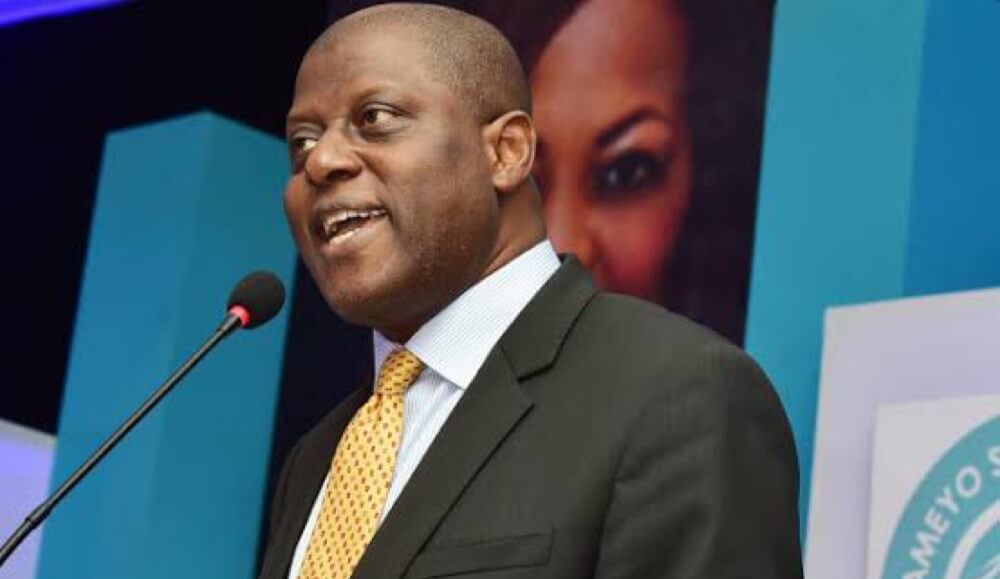It was raining talent on the day Jimi Solanke was born, and he was heavily soaked. He was blessed with a golden voice that worked like a magic touch on any tune. His body was flexible, with rhythmic bones that interpreted music easily with dance. He had a clearer mind and a deeper imagination to bend words and worlds for aha effects. Solanke was a multi-talented griot with mastery of oratory and poetry.
On Monday, at 81, he was called to join heaven’s glorious cast of masterful storytellers. Solanke was a gifted musician and multi-instrumentalist whose name commands influence in the history of African music. It is fitting that he died a day after African music was officially recognised with a category at the Grammys.

Fondly dubbed Uncle Jimi by admirers, he was an accomplished folk music artiste, dancer, playwright, actor, visual artist and poet. The density of talent is incredible, but his longevity is even more remarkable. Solanke was everything for over six decades.
He was a spell-binding storyteller, a grand puppeteer who held the audience to his every word like a string. A legend that tells legendary stories. An iconic voice that narrated tales of icons to the younger generation.
Advertisement
Solanke also credited himself as the first person to ever rap in a recorded song.
GROWING UP AS ALL-ROUND CREATIVE
Olujimi Adeboye Solanke was born on July 4, 1942, on Lagos Island to parents from Ipara Remo, Ogun state. The family later built a house in the Olorunsogo area of Mushin LGA in Lagos.
Advertisement
Little Solanke was handy with the electrical appliances around the house. He was deft with screwdrivers and was the in-house handyman for repairing gramophones. Solanke’s early gift informed his strict father that engineering would be the perfect career for the crafty kid.
But Solanke had a more fluid and emancipating dream for himself. He had also started exhibiting his artfulness within his playgroup. Whenever the group played, Solanke would build small boats from matchboxes and race them in the gutters. He had always been in touch with the artsy fire in him. Solanke was also exposed to an assortment of sounds early in life due to his parents’ musical tastes, which further fuelled his creative side.
“As children, we enjoyed the music our parents listened to. In those days of Joe Nez. In those memorable days of Rio Lindo. And of course, all the Juju bands and other social music in the genres of Sakara, Apala, Dundun, Waka and Bembe,” he told Bolaji Alonge, a Nigerian photographer and journalist, in 2020.
“At the same time, in homes like ours, because of the exposure of our parents, we listened to some other types of music from top bands of international repute. Frank Sinatra, Nat King Cole, Duke Ellington, Sarah Vaughan, Bing Crosby and the rest. These were the musicians who poured unforgettable lyrics into our lives. They made me know how to sing the range of songs we termed ‘classical ‘. Then, the Highlife era took off with E T Mensah. Bobby Benson, Charles lwegbue, Roy Chicago. All of these bandsmen reeled out tunes memorable to date.”
Advertisement
Solanke added that his exposure to this impressive array of talents developed his “interest in becoming a good singer” at a young age.
Even while he attended Olowogbowo Methodist School and Odogbolu Grammar School in Ijebu, Solanke was most popular among his fellow students for his end-of-year performances in drama and music.
As a schoolboy, Solanke would sneak into Abalabi Nite Club, close to his house in Olorunsogo, to sing with Roy Chicago’s Band. He would compose and perform with the band before sneaking back home.
After his secondary school education, Solanke’s strict father, who was hellbent on snuffing out his creative side, sent him to Ibadan to become a printing press engineer.
Advertisement

Solanke moved to Ibadan to work with M.S Sowole, who was then a commissioner for the Western Region and an uncle. He began working at Caxton Press. But Solanke’s newfound liberty in his uncle’s abode would lead him to his destiny. If Solanke was a creative seed, Ibadan was a fertile land of bubbly cultural activities that would nurture his talent into stardom.
SHARING WINE, INTELLIGENCE AT MBARI CLUB AND WORKING WITH SOYINKA
Advertisement
In Ibadan, Solanke worked at Caxton Press during the day and spent nights building a reputation as a gifted composer, performer, and singer. He quickly became a popular figure in the city’s nightlife. He sang with every band willing to take him and his golden voice.
He said that from 1961 to 1963, “l was just enjoying myself singing with any band available”. During his moonlighting spell, Solanke performed for Victor Faulkner’s band, Zen Phillip and the Blue Nine, at the Central Hotel. He was also with the Eddy Okonta band at Paradise Club in the Gbagi area of Ibadan. Chris Ajilo and the Cubanos also had him in their books.
Advertisement
At this point, his double life had begun to catch up with him. Every night he spent singing his heart into the world and dancing his sorrows away, the morning work at Caxton Press suffered. His uncle sent him out of the house for being “unserious”.
“My frequent escapades affected me at my engineering training job because I would just find one corner to doze off,” Solanke told Punch.
Advertisement
“My uncle did not notice because he was in the main house all the time. The general manager of the company, Mr. D.R. Salt, complained to him that I had no interest in the job. My uncle then said that since he brought me to Ibadan purposely to train as an engineer – which I refused to do – I’d pack my things out of his fine apartment, and I left.”
The ouster by his uncle led Solanke to the gathering of intellectuals who inspired him and honed his numerous talents at the iconic Mbari Club founded in Ibadan by Ulli Beier, the late German author.
Mbari Club was a cultural centre frequented by literary giants like Wole Soyinka, Chris Okigbo, and J. P Clark. It was a gathering of fizzing ideas and pulsating thoughts that transformed the lives of almost all its members. Solanke’s life was among those transformed.
“They were all poets, artists, writing plays that were being acted out there; and most of the time, we were just hanging around them,” he recounted in a chat with Punch.
“That opportunity opened me to another aspect of the art and got my mind engrained in culture because Mbari was a very strong group of people who were interested in developing the cultural aspect of Nigeria.
“We had enjoyed being there, not only to understudy them but to, as well, enjoy drinking wine and eating chi kebab.”
Michael Crowder, who was the head of the Institute of African Studies at the University of Ibadan (UI), was also a regular at Mbari Club. He mooted the idea of establishing a drama school at UI. Solanke and other young understudies at Mbari were encouraged to write the entry exam.
The school later metamorphosed into the Department of Theatre Arts at UI.
“When the school started, that was the next thing that took my entire time, and I got completely engulfed in drama. I was bold and ready to memorise lines and deliver, and I was lucky for my voice,” Solanke said.
“The voice became trained, and my use of English was polished. Not too many people can use the English language as Africans without trying to fake the accent. If you were properly trained and polished, other people would like to listen to you speak the English language. That is the opportunity I gained in the school. I was trained in all the ramifications of theatre, and I was arrested by the spirit of drama.”
During his years at UI, Solanke was a pioneering member of the Orisun Theatre Company, which Wole Soyinka founded.
After obtaining a diploma in drama, Solanke joined a theatre group, and his reputation as a performer extraordinaire grew. He played the leading roles in Death and the King’s Horseman, Kurunmi, Chattering and the Song, Kongi’s Harvest, The Divorce and many more. He was featured in several shows on Nigerian Television (NTA), including Village Headmaster, The Bar Beach Show, and For Better for Worse.

Once, his portrayal as Ovoramwen Nogbaisi, an ancient Oba of Benin, was so profound that Samuel Ogbemudia, then military governor of the mid-west state, said after the performance that “this is our Oba. He’s not going to Ife with you anymore”. Solanke stayed in Benin as senior cultural officer at the Midwest Arts Council, setting up the dance, music, and drama sections.
HE DID THE ‘FIRST RAP VERSE IN THE WORLD’
Solanke’s almost otherworldly bag of talents led him to another milestone. He featured on the late Ralph MacDonald’s 1978 track, ‘The Path’. Solanke opened the 17-minute medley with a poetic chant in Yoruba.
“Ona la/aiye lu jara/Ona ti la arin odo re koja/ Eru o bodo,” Solanke chanted on the bouncy rumba beat.
Solanke would later claim, “that was the first rap in the whole world”.
He narrated how he landed the gig after one of his performances at the African Festival of Arts and Culture (FESTAC) hosted by Nigeria in 1977.
“A lot of American performers came to Nigeria during FESTAC, like Stevie Wonder and I touched his shoulders the night he performed at the National Theatre,” Solanke said.
“After one of my performances, somebody next to him said, ‘Oh that’s Jimi Solanke o’, and so he gave me his card. When the festival was over, I decided to look at it. The message read, ‘You need a trip out of the country, a holiday per se.’

“So, I took a trip afterwards, first to London, then Trinidad and Tobago, and then America towards the end of November. I had already stayed for a few days when someone called me, saying that they had discussed it with a lot of people but wanted me to do a voice-over in Yoruba… So, I borrowed my friend’s jacket and went to the studio… and they were all there: Grover Washington, Hugh Masekela, late Miriam Makeba… name them, top names, top brand artists. So, they said they wanted to translate this English poem into Yoruba and then do a chant. Would you believe that was the first rap in the whole world? Yes, that was the first rap. Nobody had ever done that kind of thing. That was in 1977.”‘
‘Rappers Delight’ by the Sugarhill Gang, credited to be the first-ever rap track, was recorded in 1979.
Solanke went on to compose ‘Onile Gogoro’, ‘Eje ka jo’, ‘Jenrokan’, ‘Na today you come’ and other records.
BECOMING KIDS’ FAVOURITE STORYTELLER ON TV
Solanke had always been an enchanting raconteur. His immaculate oratory skills and expressive face were spell-binding features of a storyteller. He was a grand puppeteer who held the audience to his every word like a string.
At the twilight of his career, Solanke became a folklorist and moulded the imagination of his kids with a recantation of details of the wily tortoise and other animals of the fable world.
His baritone voice would coo the folklore music while his deft fingers pinched sonorous riffs from guitar to drive the message home for kids.
“The very first one when I came back from the US was ‘Family Scene’ on LTV 8,” Solanke told The Nation.
“It was when we had a lull then that NTA invited me to come to a children’s programme workshop at the Jos Film School.
“And so, from the different deliberations, we came up with StoryLand, where we would be telling stories, and there would be insertions of artistic works by artists who must have drawn them, me and my guitar and all that.
“It became very popular and was run for about six or seven years. When they had a problem recording me. A friend of mine who owned a television station, Galaxy, said instead of me going to Lagos to record, he would be coming to meet me in Ife. So, I recorded a series of ‘Family Reflections’. We called that ‘Family Reflections.’ After that, I designed the one for AIT, ‘African Stories on AIT.'”
Solanke is survived by Toyin, his wife, and children, along with grandchildren.






